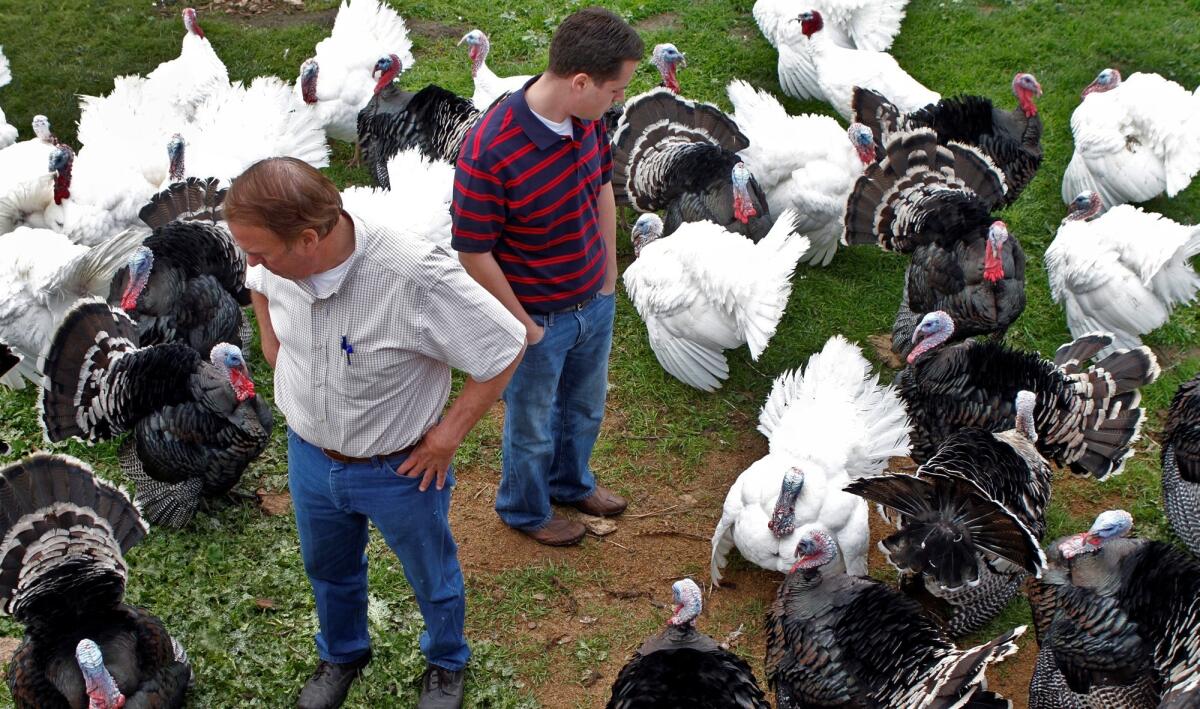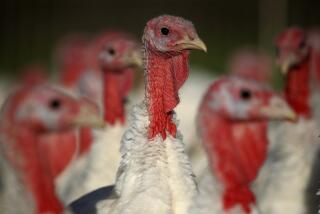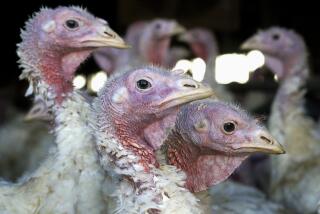Fresh, frozen, organic, natural? A guide to Thanksgiving turkey labeling

- Share via
Once upon a time, buying your Thanksgiving turkey was easy. You went to your neighborhood grocery store and picked up whichever frozen bowling ball they were selling. No more. Today, a high-end grocery may sell as many as a half-dozen types of turkey, and telling one from another takes a bit of homework.
What’s the difference between frozen and fresh? It’s not as obvious as you think. And then you’ve got organic, free-range, pastured and heritage birds.
Here’s a handy guide to some of the definitions you ought to get familiar with.
Free-range: This is a legal definition that requires that the birds be raised having access to the outdoors. There’s a bit of wiggle room. They don’t necessarily need to have access to pasture or grass, just the outdoors, which can mean dirt or gravel.
Fresh: Legally, it means that a turkey has not been chilled below 26 degrees. Practically speaking, though, a 26-degree turkey is still about as soft as a bowling ball.
Frozen: This means that the turkey has been chilled to 0 degrees. It should be noted that this doesn’t necessarily mean an inferior bird. Properly frozen, stored and defrosted, it can be excellent.
Hard- or deep-chilled: An intermediate step that means the turkey has been chilled to between 0 and 26 degrees.
Hen: This is a female bird and they usually come in at less than 16 pounds.
Heritage: This is probably the hottest category among food lovers, but it is not legally regulated. Basically, it means anything but the standard turkey breed, which is the Broad-Breasted White. Heritage birds tend to be leaner, with less meat, which means they won’t feed as many people and will dry out if not cooked carefully. They also have a gamier flavor, which is appreciated by some but not everyone.
Kosher: Turkeys that have been slaughtered and cleaned in accordance with kosher law. Note that while they have been briefly salted to draw out any remaining blood, this is not the same as brining. There is lots of confusion about this, but koshering requires salting for only one hour before rinsing, which is not at all the same as brining for several days.
Natural: Basically no added ingredients and only minimal processing — no injecting flavors or brining.
Organic: Turkeys that have been raised without hormones and steroids and have been processed without preservatives. In addition they have been fed only organic feed and have ready access to the outdoors.
Pastured: This is a new, nonregulated definition that is kind of like free-range-plus, as the birds have had access to grass.
Self-basting: These are the familiar supermarket turkeys that have been injected with flavor solution or brine to keep them from drying out.
Tom: This is a male turkey, which usually means it weighs more than 18 pounds.
Are you a food geek? Follow me on Twitter @russ_parsons1
More to Read
Eat your way across L.A.
Get our weekly Tasting Notes newsletter for reviews, news and more.
You may occasionally receive promotional content from the Los Angeles Times.











